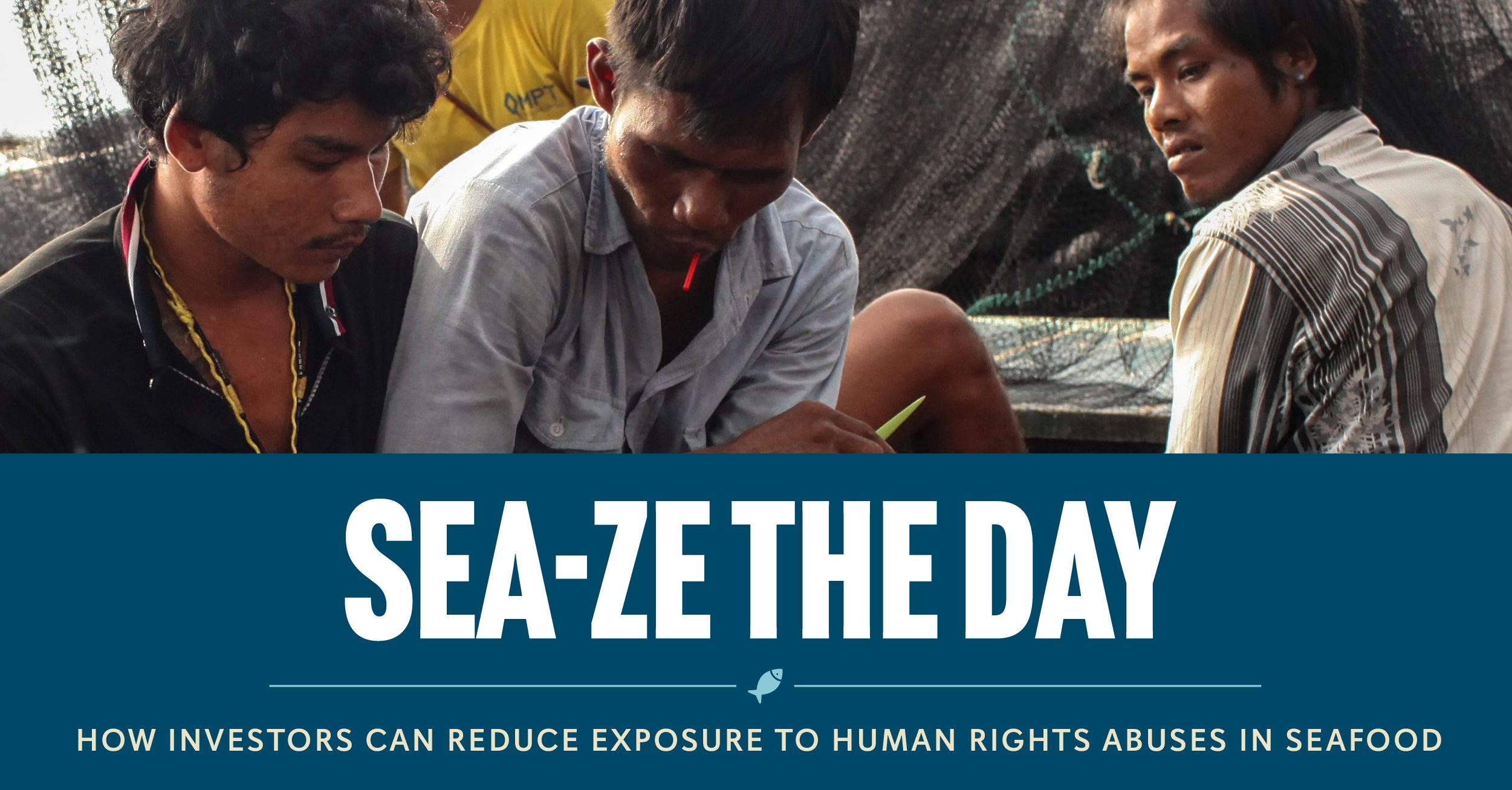On the Tenth Anniversary of Rana Plaza Tragedy, Investors Call on Companies to Prioritize Worker Safety in Global Apparel Supply Chains
Statement endorsed by 192 investors calls on companies to join the International Accord in Bangladesh and the new Pakistan Accord, to accelerate implementation of human rights due diligence in the garment sector.
NEW YORK, NY, THURSDAY, APRIL 20, 2023 – A coalition of 192 global institutional investors representing $1.3 trillion USD in assets under management released a statement today calling on apparel companies sourcing from Bangladesh and Pakistan to strengthen their implementation of human rights due diligence to effectively embed their corporate responsibility to respect human rights.
Following the 2013 collapse of Rana Plaza where 1,134 workers lost their lives and 2,500 more were injured, the Accord on Fire and Building Safety in Bangladesh (Bangladesh Accord), a landmark legally binding agreement between global brands and unions to reform the sector and create safe factories, was born.
Directly following the collapse of Rana Plaza, the Interfaith Center on Corporate Responsibility (ICCR) formed the Bangladesh Investor Initiative – comprising over 200 institutional investors with over $4 trillion in assets under management and advisement – to press global companies sourcing in Bangladesh to become directly involved in helping to reform the Bangladesh apparel sector by joining the Accord. In the ten years since, this group of investors has supported the Accord’s work to create workplaces that protect and respect the lives of workers and help mitigate the risks to companies and their investors.
“The days of voluntary CSR are fading, now replaced by a combination of mandatory human rights due diligence laws and regulations,” said David Schilling, Senior Advisor, ICCR. “For ten years, the Bangladesh Accord has proven that legally binding agreements anchored to a governance structure comprising trade unions and companies with authentic worker engagement and effective grievance mechanisms are the best recipe for meaningful, long-term change.”
In the past decade, the Accord has successfully established safer factories in Bangladesh for over two million workers through unprecedented collective action. Meanwhile, the global regulatory landscape has continued to evolve, leading to a growing number of initiatives advocating corporate respect for human rights. Notably, in January of 2023, the International Accord for Health and Safety expanded to supplier factories in Pakistan, a move widely welcomed by investors.
“The tragic Rana Plaza collapse in Bangladesh led to an outcry in the apparel industry and also in the investment industry. In the aftermath of the Rana Plaza tragedy, investors played a role in encouraging retailers to sign the Bangladesh Accord,” said Måns Carlsson, head of ESG for Ausbil Investment Management. “That framework helps reduce the risk of further safety tragedies in the Bangladeshi garment sector and it is a concept that could be applied in additional geographies and sectors. Having recently visited garment factories in Bangladesh, it is clear that the Accord has been a positive force but investors should also note that many underlying labor rights issues remain in the Bangladeshi garment industry.”
“In the current policy environment, companies are increasingly required to show how they effectively implement human rights due diligence to address salient human rights issues across their operations and value chains. Companies need to prepare and ensure compliance with current and upcoming regulation. If not already a signatory, the best way to ensure due diligence on health and safety issues is to join the International Accord and the Pakistan Accord,” said Matthias Narr, Head of Engagement International at Ethos.
To further accelerate progress on human rights due diligence, the investor coalition is urging brands to commit to prioritizing the health and safety of workers in Bangladesh, Pakistan, and throughout global supply chains by taking the following four concrete actions:
- Accelerating and strengthening the implementation of human rights due diligence as defined by the UN Guiding Principles on Business and Human Rights with increased attention given to remedy, in their operations and value chains as part of their ‘corporate responsibility to respect human rights’;
- For those companies sourcing from suppliers in Bangladesh or with plans to do so in the near future, signing the International Accord;
- For those companies sourcing from suppliers in Pakistan or with plans to do so in the near future, signing the Pakistan Accord;
- Joining the Employment Injury Scheme (EIS) Pilot in the garment sector of Bangladesh, an innovative tripartite initiative that involves the ILO, government, brands, trade unions, and employers, in creating a social protection scheme including compensation for medical treatment and rehabilitation services, as well as income loss caused by occupational injuries and disease.
“As a legally binding system designed to protect more than two million garment workers and give them a mechanism for redress, the Accord has been absolutely transformative in the apparel industry over the past ten years,” said Lauren Compere, Head of Stewardship & Engagement at Boston Common Asset Management. “At the same time, investor expectations of portfolio companies with regard to human rights implementation have also risen, and today we call on apparel brands to go further, and put human rights at the core of their business models and worker health and safety as a top priority in their supply chain management.”
“Investors will be engaging relevant companies in their portfolios, particularly U.S.-based companies that have yet to join the International and Pakistan Accords,” stated Chavi Keeney Nana, Director of Equitable Global Supply Chains at ICCR.
CONTACT:
Susana McDermott
Director of Communications
Interfaith Center on Corporate Responsibility
201-417-9060 (mobile)
smcdermott@iccr.org
About the Interfaith Center on Corporate Responsibility (ICCR)
Celebrating its 51st year, ICCR is the pioneer coalition of shareholder advocates who view the management of their investments as a catalyst for social change. Its 300-member organizations comprise faith communities, socially responsible asset managers, unions, pensions, NGOs, and other socially responsible investors with combined assets of over $4 trillion. ICCR members engage hundreds of corporations annually in an effort to foster greater corporate accountability. Visit our website www.iccr.org and follow us on Twitter, LinkedIn, and Facebook.









